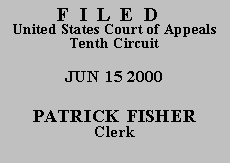

| UNITED STATES OF AMERICA, |
|
| v. | |
| SALVADOR JUAREZ-RODRIGUEZ, |
On appeal, Mr. Juarez-Rodriguez challenges the district court's characterization of his previous conviction as an aggravated felony under §2L1.2 and as a felony under California law. Title 8 U.S.C. §1101(a)(43)(F) defines aggravated felony to include "a crime of violence . . . for which the term of imprisonment [is] at least one year."
In 1996, Mr. Juarez-Rodriguez was convicted of two separate instances of inflicting corporal injury upon his spouse, pursuant to California Penal Code § 273.5. He was sentenced to a two-year prison term for the first conviction, and to two years for the second conviction, to be served concurrently.
The presentence report, to which Mr. Juarez-Rodriguez did not object, indicates that Mr. Juarez-Rodriguez was sentenced to two years in state prison for the first violation of § 273.5. Section 273.5 is one of California's problematic "wobbler" statutes, see People v. Holt, 690 P.2d 1207, 1215 n.7 (Cal. 1984) (en banc). The state court may treat a violation of a wobbler statute as either a misdemeanor or a felony depending on the punishment imposed. If the sentence imposed includes a state prison term, the conviction becomes a felony by operation of state law. See Cal. Penal Code § 17(b)(1).
Mr Juarez-Rodriguez admitted to the existence of the second conviction during his plea allocution before the district court, but made no statement regarding the first conviction. At the sentencing hearing, Mr. Juarez-Rodriguez challenged the characterization of the first conviction as a felony, but did not challenge the second conviction's characterization. He also disputed the underlying facts of both convictions at sentencing.
We note because Mr. Juarez-Rodriguez's failed to object to the factual assertion in the presentence report that he was convicted of a felony "'acts as an admission of fact.'" United States v. Shinault, 147 F.3d 1266, 1278 (10th Cir. 1998) (quoting United States v. Deninno, 29 F.3d 572, 580 (10th Cir. 1994)). Mr. Juarez-Rodriguez challenged the facts underlying his convictions under § 273.5, but his belated challenge to the treatment of the first conviction as a felony by operation of state law is too little too late. Even if his challenge garnered some merit, the second conviction may serve as the predicate offense for the purposes of the sentencing guidelines.
Although the Eighth Circuit has imposed a rigid test for a similar wobbler statute, Cal. Health & Safety Code § 11355, see United States v. Hester, 917 F.2d 1083, 1084 (8th Cir. 1990) (stating that although California classified the relevant conviction as a misdemeanor, "because the potential punishment for [the] offense exceeds one year, [the defendant's] California conviction must be treated as a felony for federal sentencing purposes under section 4B1.1 [of the USSG]"), we see no need to formulate such a test here. The unchallenged record here supports the district court's finding that the predicate offense was an aggravated felony under the USSG. Under §2L1.2(b)(1)(A), because Mr. Juarez-Rodriguez was previously deported after a conviction for an aggravated felony, the district court may impose a sixteen-level increase to his base offense level.
For the reasons set forth above, we AFFIRM Mr. Juarez-Rodriguez's sentence.
Entered for the Court,
Robert H. Henry
Circuit Judge
*. This order and judgment is not binding precedent, except under the doctrines of law of the case, res judicata, and collateral estoppel. The court generally disfavors the citation of orders and judgments; nevertheless, an order and judgment may be cited under the terms and conditions of 10th Cir. R. 36.3.